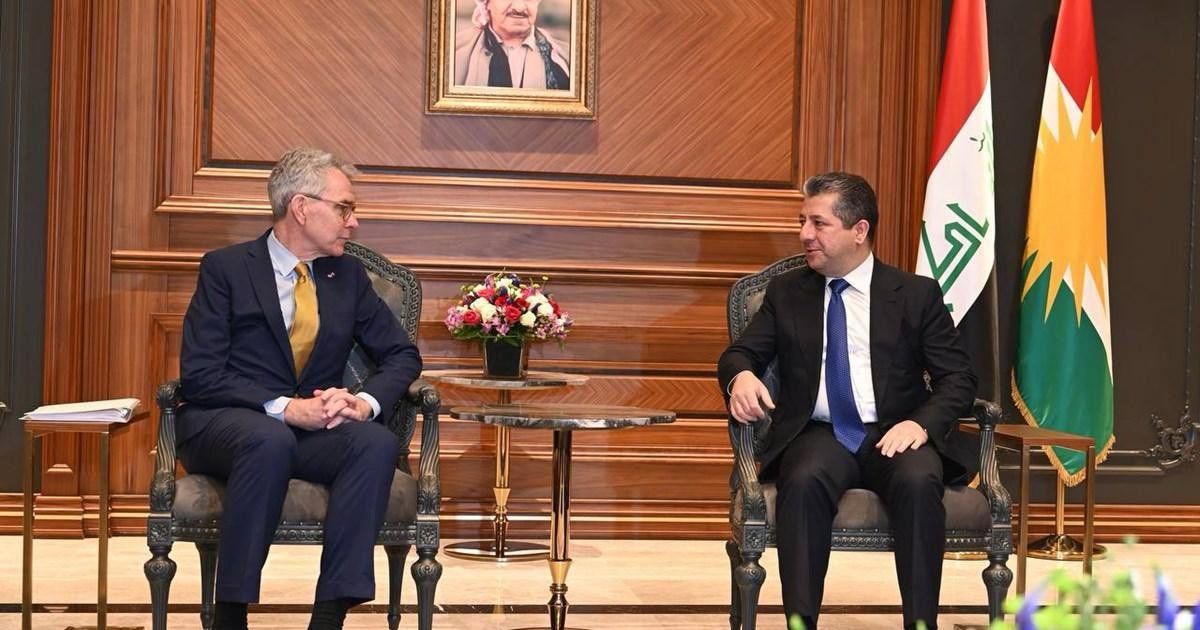Baghdad, 17 May 2024(TDI): The US Assistant Secretary of State for Energy Resources Geoffrey Pyatt landed in Iraq, and met with Iraq’s Prime Minister Muhammad Shia Al Sudani to review cooperation between the United States and Iraq on the Energy Sector.
Geoffrey Pyatt landed in Iraq on Wednesday, where he was welcomed by the US Ambassador to Iraq, Alina Romanowski. She stated that the trip aims to advance the US-Iraq energy cooperation.
In a meeting between Iraqi Prime Minister Muhammad Shia Al Sudani and US Assistant Secretary of State for Energy Resources Geoffrey Pyatt, both leaders discussed different strategies to boost US-Iraq energy cooperation and explore the area of interest.
Also read: US announces new $2bn aid for Ukraine
Prime Minister Muhammad Shia Al Sudani expressed his government’s eagerness to make the country self-sufficient in energy, particularly in natural gas extraction, electricity production, petrochemical and fertilizer productions and supply of oil derivatives.
Additionally, he emphasized that U.S companies would greatly benefit from investing in various areas, particularly in the Kurdistan region.
He vowed that his government is actively working to significantly enhance economic and financial reforms in critical areas such as customs, taxes, the banking industry, and more.
The US Assistant Secretary of State for Energy Resources Geoffrey Pyatt optimistically praised the Iraqi government’s effort to grow the energy industry and reaffirmed the US assistance in achieving the government’s 2030 energy goal.
The Assistant Secretary unequivocally met with the Prime Minister of the Kurdistan Regional Government (KRG), Masrour Barzani, closely supervised by the Ambassador to Iraq, Alina Romanowski.
During the meeting, Geoffrey Pyatt emphatically stressed the vital importance of the Kurdistan Region’s (IKR) energy development for Iraq’s energy independence and security.
Geoffrey Pyatt held discussions with Minister of Electricity Zaid Ali Fadhil, addressing critical aspects of the energy sector such as distribution, transportation, diversification of energy sources, and the advancement of green energy projects.
The author is a seasoned content writer and a vital contributor to The Diplomatic Insight Magazine.



